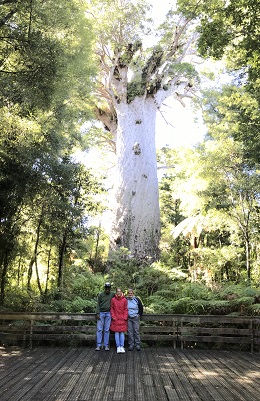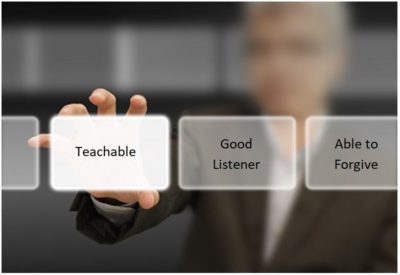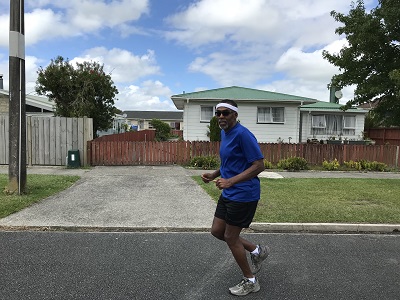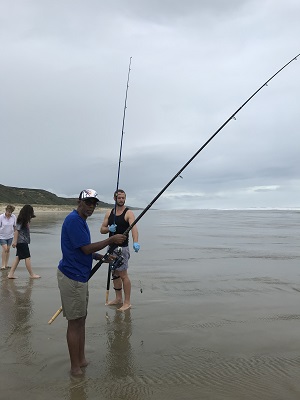 Emotionally healthy leaders are leaders who have embraced their real self and are comfortable with who they are in Christ. They know they have weaknesses; they have made mistakes and are not perfect. They are honest with themselves, they don’t live in denial of who they are.
Emotionally healthy leaders are leaders who have embraced their real self and are comfortable with who they are in Christ. They know they have weaknesses; they have made mistakes and are not perfect. They are honest with themselves, they don’t live in denial of who they are.
Category Archives: Leadership Coaching
Who Tells You the Truth?
by
 Do you have a person or persons in your life who can tell you the truth about what they are seeing in your life that has the potential to lead to failure as a leader, and ultimately destroy you as a person?
Do you have a person or persons in your life who can tell you the truth about what they are seeing in your life that has the potential to lead to failure as a leader, and ultimately destroy you as a person?
Having people who can tell you the truth is often difficult for leaders because of the power and influence which come with leadership. Those you lead may be seeing signs of failure. However, they may be afraid to say anything directly to you because of the power and influence you have over them.
Effective Multi-Generational Leadership
by

Family portrait of three generations. Mother, daughter and grandmother.
One of the biggest and toughest challenges leaders have face is the challenge of leading multi-generational organizations. And that challenge is probably most difficult within the church. The primary reason for this is that the church is the only organization whose niche market includes everyone.
One of the last things Jesus said to his disciples before returning to heaven was for them to go and make disciples of all nations (Matthew 28:19). Jesus did not discriminate in any way regarding who should or could be a disciple. This means everyone. Of course, this presents all kinds of challenges for church leaders, one of which is how to effectively lead a multi-generational church.
Lessons in Leadership from Tāne Mahuta
by
 Written by guest blogger Rhonda Carrim
Written by guest blogger Rhonda Carrim
Recently our family visited the Waipoua Forest in the Northland of New Zealand. A must-see attraction in the forest is Tāne Mahuta, New Zealand’s largest known living kauri tree. Kauri, a type of conifer, are massive trees; only California’s Giant Sequoias are larger. Tāne Mahuta stands nearly 170 feet tall, with a trunk girth of more than 45 feet. Kauri also have longevity; Tāne Mahuta’s estimated age is between 1,200–2,000 years old.
Gold Diggers for God!
by

A great challenge of leadership is the reality that we deal with broken human beings. The challenge is greater because as leaders, we ourselves are broken humans. But as broken human beings leading broken human beings, we are all trying to follow the Perfect One, our Lord Jesus Christ.
I am afraid that too many of us forget this fact when we are responsible for the department or the entire organization. Suddenly we expect everyone to do their part perfectly; and if they don’t, we get frustrated and wonder why people can’t be relied upon to get things done in a timely manner and in the way we want them done.
The Gift of Limitations
by

In working with leaders, one of the challenges I see that often gets in their way is their limitations. Too many leaders, myself included, struggle with accepting our limitations. As a result, limitations end up inhibiting our personal development and progress within an organization.
When leaders do not see and accept their limitations (which we all have), they drive away or frustrate the people who are talented in those very areas; others know they can do better if given an opportunity. Perhaps you know how to read a spreadsheet, but you may not be talented in accounting. Just because you are the leader does not mean that the accounting system must be done exactly as you remember (or not) from your college accounting course – which may have been a decade (or more) ago!
A Survival Guide to Successful Leadership
by
 As in any great endeavor, not knowing what is required for survival or success is likely to lead to failure.
As in any great endeavor, not knowing what is required for survival or success is likely to lead to failure.
We often hear about wilderness survival adventures where the skills of surviving in the wilds are needed in order to return alive.
The same is true for leaders: without knowing the survival skills of leadership, the outcomes of failure or mediocrity are most likely. And no one wants to be known as a failed or mediocre leader.
Why Compare?
by
 A question we are often asked here in Dargaville, New Zealand, is how our various experiences compare to what it would be like in the United States. People are often surprised at our response; we tell them that we are not really comparing it to our experience in the U.S., but just taking it for what it is.
A question we are often asked here in Dargaville, New Zealand, is how our various experiences compare to what it would be like in the United States. People are often surprised at our response; we tell them that we are not really comparing it to our experience in the U.S., but just taking it for what it is.
The desire to compare is part of our DNA as humans.
How Rude!
by
 Those of you who know me well, know that I am an avid jogger. When arriving in a new place, some may look for places to shop or eat, but one of the first thing I do is check out where can I go jogging. Consequently, moving to a new place for six months meant that I would need to discover the jogging areas.
Those of you who know me well, know that I am an avid jogger. When arriving in a new place, some may look for places to shop or eat, but one of the first thing I do is check out where can I go jogging. Consequently, moving to a new place for six months meant that I would need to discover the jogging areas.
I started my jogging routine soon after we arrived and quickly discovered something rather interesting. In my experience, where I live in the United States – Nampa, Idaho – drivers are very courteous to joggers. For example, when I approach an intersection, although vehicles generally have the right of way, they almost always stop and let me either make the turn or cross the intersection ahead of them.
Context Determines Meaning
by
 One of the nice things about being here in New Zealand is that we don’t have a language barrier. English is the spoken and written language, which has made communication easier. Yet, while communication has been relatively easy, we have had some challenges with communicating – because context determines meaning.
One of the nice things about being here in New Zealand is that we don’t have a language barrier. English is the spoken and written language, which has made communication easier. Yet, while communication has been relatively easy, we have had some challenges with communicating – because context determines meaning.
When we arrived, one of the members of the congregation asked if we liked fishing. Well, of course we like fishing; it’s something our family enjoys doing together. So, he offered to take us ocean fishing. We were excited for this opportunity since our family has never been ocean fishing.
When the day came, we were told to make up some sandwiches, meet at the member’s house and we would go from there. From our limited wardrobe, we dressed as best we could in clothing appropriate for fishing, packed some sandwiches, grabbed a towel just in case, and put on our water shoes since we expected our feet might get wet with water splashing into the boat.
